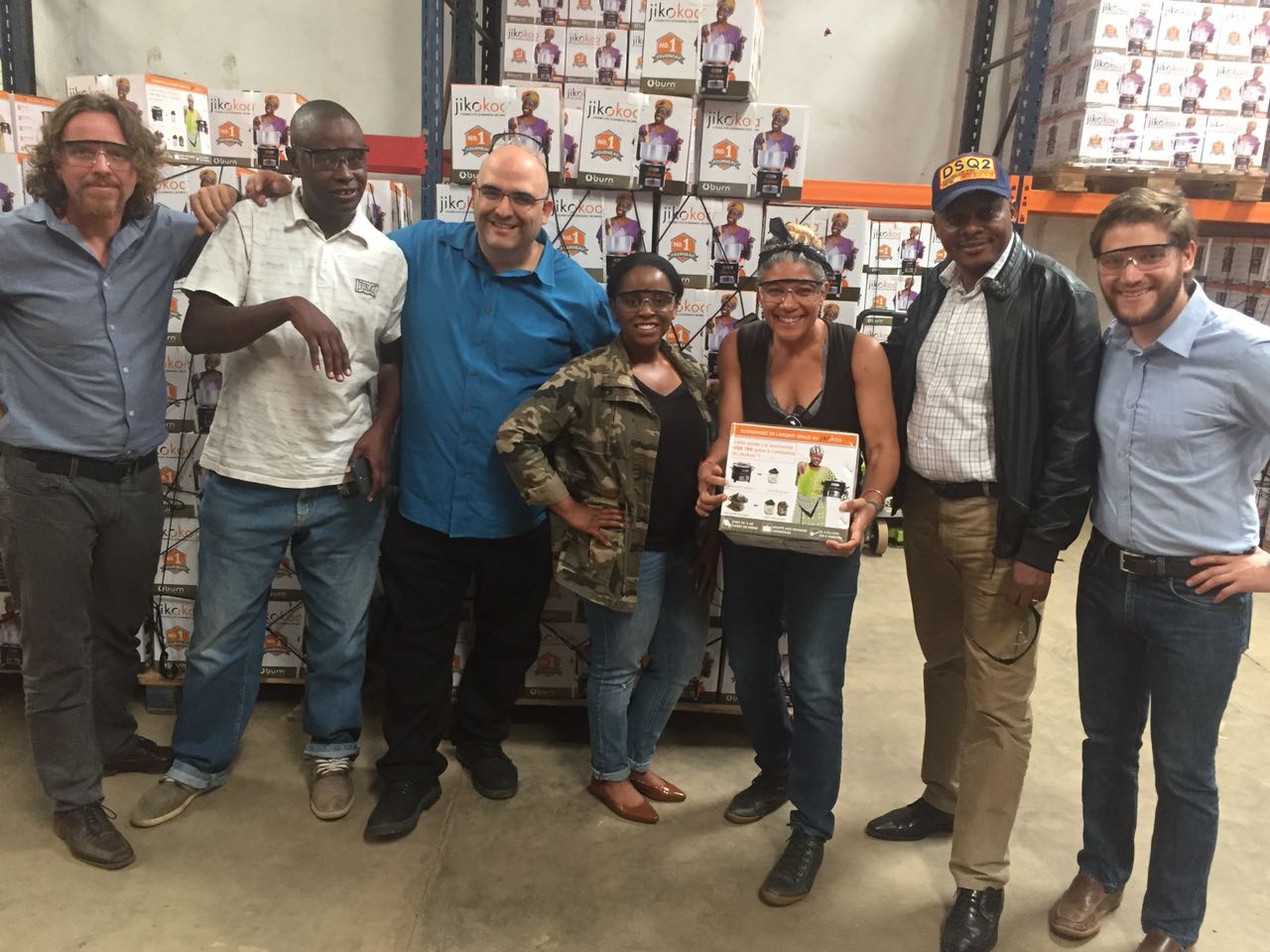Image: Burn Manufacturing
26 March 2018
In the DRC, it is estimated that 96% of the total volume of wood harvested in DRC is for fuelwood – representing more than 90% of the total energy consumption by Congolese households. A main driver of deforestation, Forest communities are dependent on the forest for energy, in addition to food and as a means of income.
As populations continue to grow, this dependency shows no sign of waning. CAFI now looks toward new opportunities for employment and energy in the DRC.
Following the completion of a comprehensive feasibility study in to the potential for accelerator/incubator programmes in the DRC and Gabon, on 1 March, CAFI hosted a workshop in Nairobi titled: Building A Clean and Efficient Energy Cooking and Fuels Markets Through Incubation Of Enterprises In The DRC.
Reiterating the need for an economic transition from a forest-based economy to a forest-friendly and green economy; CAFI and Dalberg presented the findings of the 2017 study; specifically focusing on clean cooking as both a means for economic and employment growth, and a response to the overuse of fuelwood for cooking. Over past 3-4 years, the cleaning cooking sector has been de-risked through standardization, innovation and entrepreneurship. Scalable, financially-viable models starting to emerge and companies delivering products people want and will pay for; are building R&D capability and distribution channels in East Africa.
The objective: To understand the parameters needed for incubators to support forest friendly energy investments - specifically clean cooking, with learning’s from the East African market experience.
The workshop was hosted by representatives of the UNDP and Dalberg, and attended by a number of leading global innovative enterprises in the clean cooking industry:
- Burn Manufacturing: A cookstove company currently serving ~2,000,000 beneficiaries who save up to USD $80 million in reduced fuel costs and 1.3 million tons of wood, across East Africa and Sub-Saharan Africa
- KOKO Networks: Producers of SmartCook, an ethanol cooking solution with reusable smart fuel canisters that can be docked and refilled at KOKOpoints.
- Envirofit: Purveyors of smart energy products and services that work to save consumer costs and reduce CO2 emissions by up to 27 million tons.
- Biolite: Manufacturers of fuel-independent cooking and charging products with the added provision of financial and operational support.
- Emerging cooking solutions (Supamoto): A producer of bio-waste fuel-pellets and the world’s cleanest non-fanned gasifier.
Participants, including other stakeholders like the Global Alliance for Cooking Stoves, discussed the potential opportunities and challenges associated with entrance into the DRC marketplace, as well as the specific implementation models – likely to include both incubation of local SMEs and support for the accelerated market entry of global innovators in clean cooking.
The project – DRC UNDP Sustainable Energy Programme, being developed by UNDP for consideration by FONAREDD, will support the creation of clean and improved cooking energy SMEs in the DRC – with a focus on enterprises that intend to replicate successful international models. The project is currently looking for partnerships with enterprises and investors interested to engage in the DRC or with country pilots that require de-risking support (around policy, distribution, market information etc.) for market entry and expansion - given the challenges of the DRC business environment.

